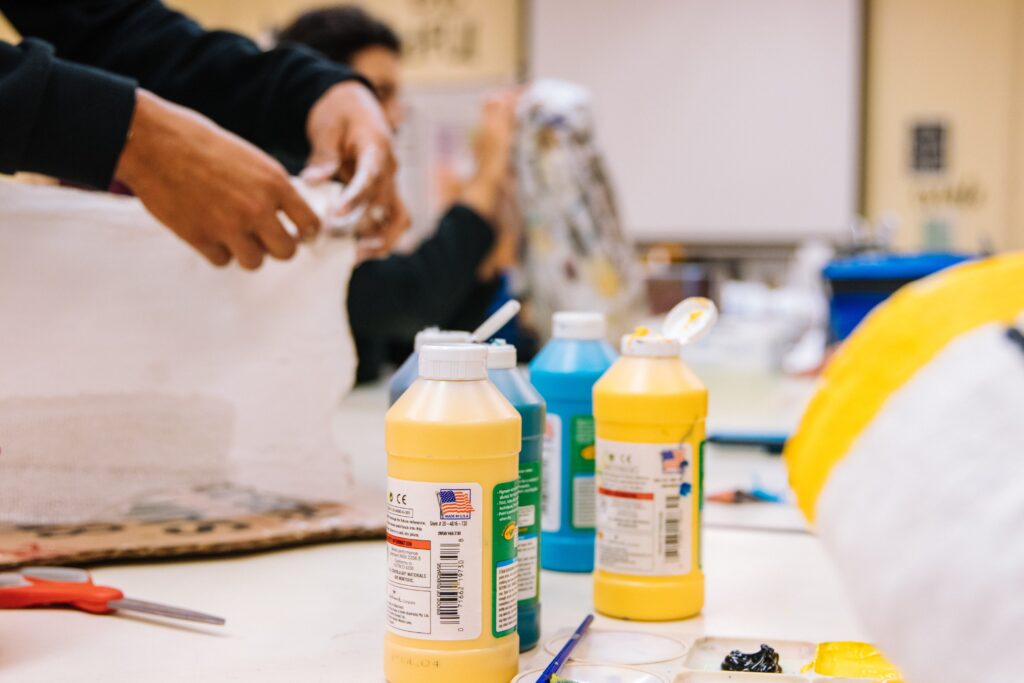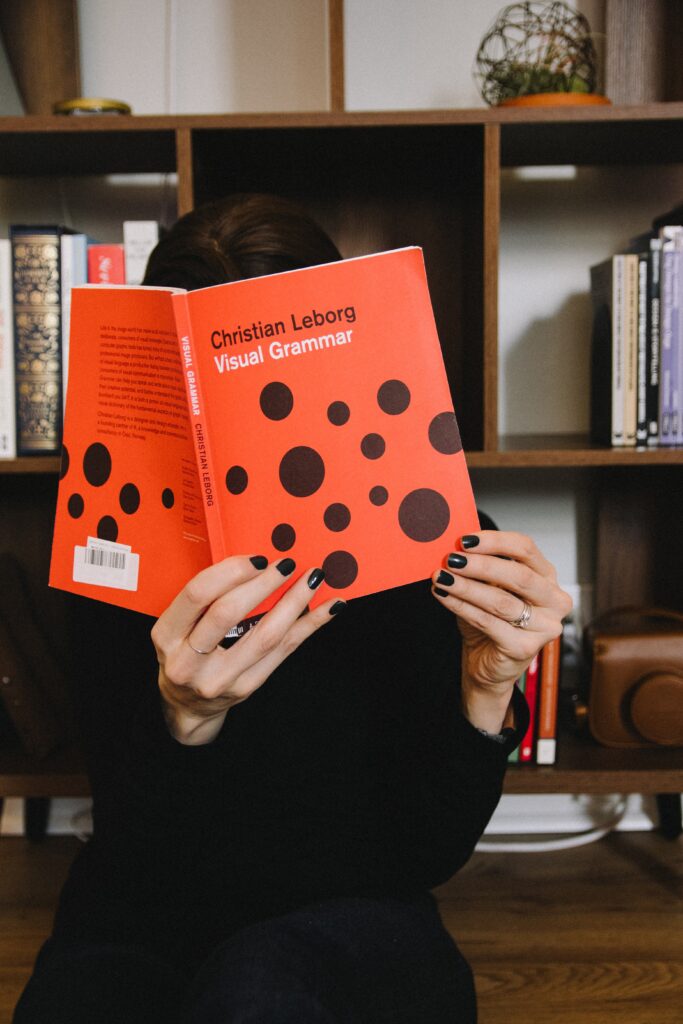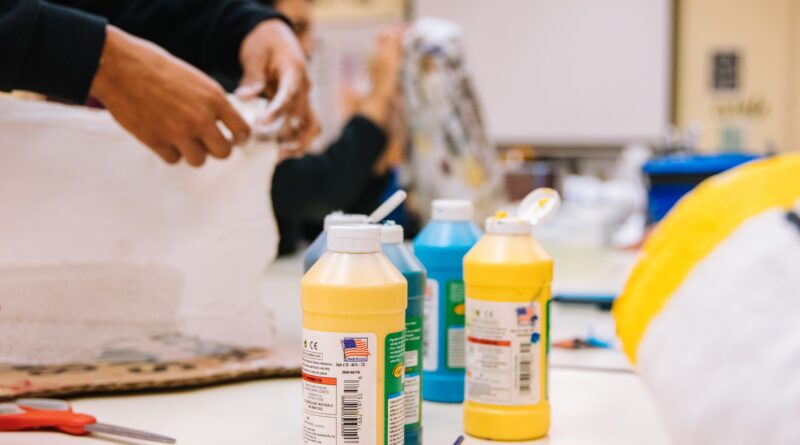Messy Play Benefits: How Messy Play Supports Your Toddler’s Development
Have you ever noticed that whenever your toddler has the chance to get their hands dirty, they light up with excitement? It turns out there’s a good reason for this. Messy play, which includes activities like painting, sensory bins, and playdough, not only provides endless entertainment for your little one but also offers numerous benefits for their development. From enhancing their sensory skills to promoting creativity and problem-solving abilities, messy play is an essential aspect of your toddler’s growth. So, embrace the mess and let your child explore the wonders of messy play as they learn, discover, and have fun along the way.

Physical Development
Fine Motor Skills
Engaging in messy play activities can greatly support the development of fine motor skills in toddlers. When your child squishes, squeezes, and molds different materials, such as playdough or finger paints, it helps them practice precise movements and enhance their hand-eye coordination. Activities like pouring, scooping, and manipulating small objects also strengthen the muscles in their hands and fingers, preparing them for tasks like writing and buttoning clothes in the future.
Gross Motor Skills
While messy play often focuses on smaller movements, it can also promote the development of gross motor skills in toddlers. Activities like stomping in a puddle of paint or jumping in a pile of leaves help your child improve their balance, coordination, and overall body strength. Outdoor play and messy games encourage your toddler to explore different movements like running, crawling, and throwing, which are essential for their physical development.
Sensory Exploration
Messy play provides an excellent outlet for sensory exploration, allowing your child to engage their senses and learn about their environment. Whether they are feeling different textures, hearing the sound of squishing materials, or smelling various scents, messy play exposes toddlers to a wide range of sensory experiences. These sensory explorations help develop their sensory perception and sensitivity, enabling them to understand and respond to different stimuli in their surroundings.
Hand-eye Coordination
Messy play activities require your toddler to coordinate their hand and eye movements to achieve a desired outcome. Whether they are pouring water into containers or attempting to pour a liquid from one cup to another, these actions help develop their hand-eye coordination. As they get more proficient, they can further enhance this skill by engaging in activities like threading beads, picking up small objects, or trying to paint within the lines. Improving hand-eye coordination not only supports their physical development but also helps in daily tasks like eating with utensils or dressing themselves.
Cognitive Development
Creativity and Imagination
One of the significant benefits of messy play is its ability to ignite your toddler’s creativity and imagination. Through messy play, your child can explore different materials and manipulate them in unique ways, fostering their creativity and encouraging imaginative thinking. Whether they are building a sandcastle, creating a sculpture with clay, or pretending to be a chef in their pretend kitchen, messy play offers endless opportunities for your toddler to express their creativity and develop their imagination.
Problem Solving
Messy play often presents your toddler with challenges that require problem-solving skills. As they engage in different activities, such as building structures with blocks or figuring out how to cover a surface with paint, they learn to think critically and find solutions. Encouraging your child to experiment, explore, and overcome obstacles during messy play activities supports their problem-solving skills, promoting their cognitive development in a fun and engaging way.
Cause and Effect
Messy play allows your toddler to experience cause and effect relationships firsthand. When they pour water into a container, they observe how it fills up. If they squeeze a water-filled sponge, they see liquid dripping out. These cause-and-effect experiences help your child understand the basic principles of cause and effect, fostering their cognitive development and logical thinking. With repeated exposure to messy play, your toddler can develop a deeper understanding of cause and effect in various aspects of their life.
Memory and Language Development
During messy play, your child engages in sensory experiences that stimulate their brain and help with memory development. Whether they are recalling the texture of a certain material or remembering the steps of a messy play activity, their memory skills are constantly being exercised. Messy play also provides opportunities for language development as children describe what they are doing, ask questions, and engage in conversations with adults or peers. These interactions enhance their vocabulary, language expression, listening, and comprehension skills.
Social Development
Sharing and Cooperation
Engaging in messy play with others fosters sharing and cooperation in your toddler. When children engage in group messy play activities, they learn the importance of taking turns, sharing materials, and collaborating with others. These social interactions help develop their social skills and teach them how to navigate social situations, laying the foundation for positive relationships with their peers later in life.
Communication Skills
Messy play offers countless opportunities for your toddler to communicate and express their thoughts and ideas. As they engage in different activities, they can describe the textures, colors, and shapes they experience. They may also communicate their preferences, ask questions, or seek assistance when needed. Engaging in messy play activities helps your child develop their communication skills, both verbal and non-verbal, as they interact with others and express themselves in a creative and interactive environment.
Empathy and Emotional Development
Messy play provides a safe space for toddlers to explore and express their emotions. As they engage in different sensory experiences, they can experience a wide range of emotions, from excitement to frustration or even surprise. Through messy play, your child can learn to recognize and manage their emotions, developing their emotional intelligence. Additionally, engaging in messy play with others promotes empathy as children observe and respond to the emotions and experiences of their peers.
Self-expression and Confidence
Messy play activities provide toddlers with the freedom to express themselves in a non-judgmental environment. Whether they are experimenting with different art techniques or building structures with various materials, messy play allows them to showcase their creativity and individuality. This self-expression boosts their self-confidence and self-esteem, as they see that their ideas and efforts are valued. Encouraging and praising your child’s messy play endeavors can further boost their self-confidence and foster a positive self-image.
Emotional Development
Stress and Anxiety Relief
Engaging in messy play can be a great way for toddlers to relieve stress and anxiety. The sensory experiences offered by messy play activities can have a calming effect on your child, reducing their levels of stress and promoting relaxation. The tactile sensations and the freedom to explore and create without fear of making a mess can provide a comforting and soothing experience, allowing your toddler to unwind and release any built-up tension.
Self-regulation and Emotional Control
Messy play provides a space for your toddler to learn and practice self-regulation and emotional control. As they engage in different messy activities, they may encounter situations that require patience, self-control, and the ability to manage frustrations or setbacks. Over time, their exposure to messy play and the challenges it presents will help them develop these essential skills, enabling them to regulate their emotions and respond appropriately to different situations.
Sense of Achievement and Pride
Completing a messy play activity and seeing the end result can give your toddler a sense of achievement and pride. Whether they have created a colorful painting, built a sandcastle, or successfully completed a sensory experiment, messy play offers opportunities for your child to feel accomplished and proud of their efforts. Celebrating and acknowledging your child’s achievements can further boost their self-esteem and motivate them to continue exploring and learning through messy play.

Sensory Development
Stimulation and Exploration
Messy play is an excellent way to provide sensory stimulation and encourage sensory exploration in toddlers. The different textures, colors, smells, and sounds that messy play offers help your child develop their senses and understand the world around them. By engaging in messy play activities, toddlers can explore various materials, such as sand, water, mud, or playdough, which provide unique sensory experiences and promote their sensory development.
Sensory Integration
Messy play can also support sensory integration in toddlers. Sensory integration refers to the brain’s ability to process and interpret sensory information from the environment. Engaging in messy play activities helps children integrate and make sense of different sensory inputs, such as touch, sight, and sound. By engaging in messy play and experiencing a variety of sensory inputs, toddlers can enhance their sensory integration skills, leading to improved coordination, attention, and overall sensory processing abilities.
Enhanced Sensory Perception
Messy play activities offer toddlers opportunities to refine and enhance their sensory perception. When children engage in activities like manipulating playdough or exploring a sensory bin filled with materials of different textures, they develop a better understanding and recognition of sensory cues. This enhanced sensory perception helps them become more aware of their surroundings and more attuned to the sensory information they receive, leading to improved sensory processing abilities and overall sensory awareness.
Creativity and Imagination
Open-ended Play
Messy play allows toddlers to engage in open-ended play, where there are no right or wrong answers or predetermined outcomes. This type of play encourages your child to use their imagination and creativity freely. Whether they are molding shapes with clay, creating a collage, or building structures with blocks, messy play offers a blank canvas for your child to explore and create without limitations, nurturing their creativity and imaginative thinking.
Symbolic Representation
Messy play facilitates symbolic representation, which is an essential aspect of cognitive and creative development. As your toddler engages in messy play activities, they can assign different meanings and representations to the materials they are manipulating. For example, they may pretend that a pile of sand is a mountain or that a blob of paint represents an animal. Symbolic representation helps develop your child’s ability to think abstractly, enhancing their cognitive and imaginative skills.
Artistic Expression
Messy play can be seen as a form of artistic expression for toddlers. Through messy play activities, your child can experiment with different art techniques, create unique masterpieces, and express their emotions visually. This artistic expression allows your child to communicate and convey their thoughts, feelings, and experiences in a non-verbal manner. Engaging in messy play nurtures your toddler’s artistic abilities and appreciation for the arts, promoting their creative development.

Language Development
Vocabulary Expansion
Engaging in messy play activities exposes your toddler to a wide range of vocabulary words. As they engage with different materials, textures, colors, and shapes, they are provided with opportunities to learn new words and expand their vocabulary. Describing the various sensory experiences during messy play, both independently and with adult guidance, helps your child learn and incorporate new words into their everyday language.
Language Expression
Messy play activities encourage and support your toddler’s language expression. As they engage in messy play, they can describe their actions, explain their thoughts, and express their preferences or reactions. Engaging in conversations with adults or peers during messy play promotes language development and provides your child with opportunities to practice articulating their ideas and thoughts.
Listening and Comprehension
Messy play activities offer opportunities for your toddler to develop their listening and comprehension skills. As they receive instructions or engage in conversations during messy play, they learn to listen attentively and process the information being shared. This active listening helps improve their comprehension skills, enabling them to understand and follow directions, engage in conversations, and actively participate in group activities.
Cognitive Skills
Math Skills
Messy play activities can support the development of basic math skills in toddlers. When children engage in pouring or transferring activities, they are exposed to concepts like volume and capacity. Counting objects, comparing sizes and quantities, or sorting different materials during messy play promote early math skills and lay the foundation for more complex mathematical concepts in the future.
Problem-solving
Messy play activities offer opportunities for your toddler to exercise their problem-solving skills. As they encounter challenges or obstacles during messy play, they learn to think critically, experiment, and find solutions. Whether they are figuring out how to build a stable structure with blocks or using trial and error to create a desired texture with different materials, messy play promotes problem-solving skills and encourages your child to think creatively and analytically.
Critical Thinking
Engaging in messy play activities helps develop your toddler’s critical thinking skills. As they explore and manipulate materials, they learn to observe, analyze, and make connections. Whether they are predicting the outcome of a messy play activity, reflecting on their experiences, or reviewing the cause-and-effect relationships involved, messy play supports the development of critical thinking skills, enabling your child to become a more independent and analytical thinker.
Physical Health
Muscle Development
Messy play activities provide opportunities for your toddler to engage their muscles and promote overall muscle development. Whether they are squeezing, kneading, or stirring materials during messy play, these actions help strengthen the muscles in their hands and fingers. Engaging in activities like jumping, running, or stomping during outdoor messy play also supports the development of gross motor skills and strengthens their leg muscles. Regular participation in messy play can contribute to your child’s overall physical health and well-being.
Exercise and Active Play
Messy play is an active and engaging form of play that encourages your toddler to move and explore their surroundings. Activities like running through a sprinkler, dancing in a pile of leaves, or crawling through a sensory tunnel provide opportunities for exercise and active play. Engaging in regular physical activity through messy play not only promotes physical health but also supports your child’s cognitive development, emotional well-being, and overall growth.
Parent-Child Bonding
Quality Time
Engaging in messy play with your toddler allows for special quality time together. By setting aside dedicated playtime for messy activities, you create an opportunity for bonding and connection. Engaging in messy play offers moments of joy, laughter, and shared experiences that deepen the parent-child relationship and create lasting memories.
Shared Experiences
Participating in messy play together creates shared experiences and strengthens the parent-child bond. Both you and your toddler can explore materials, create together, and engage in conversations during messy play. These shared experiences foster a sense of closeness and connection, allowing you to engage in your child’s world and understand their perspectives. By engaging in messy play together, you can create a strong foundation for a loving and nurturing relationship.

